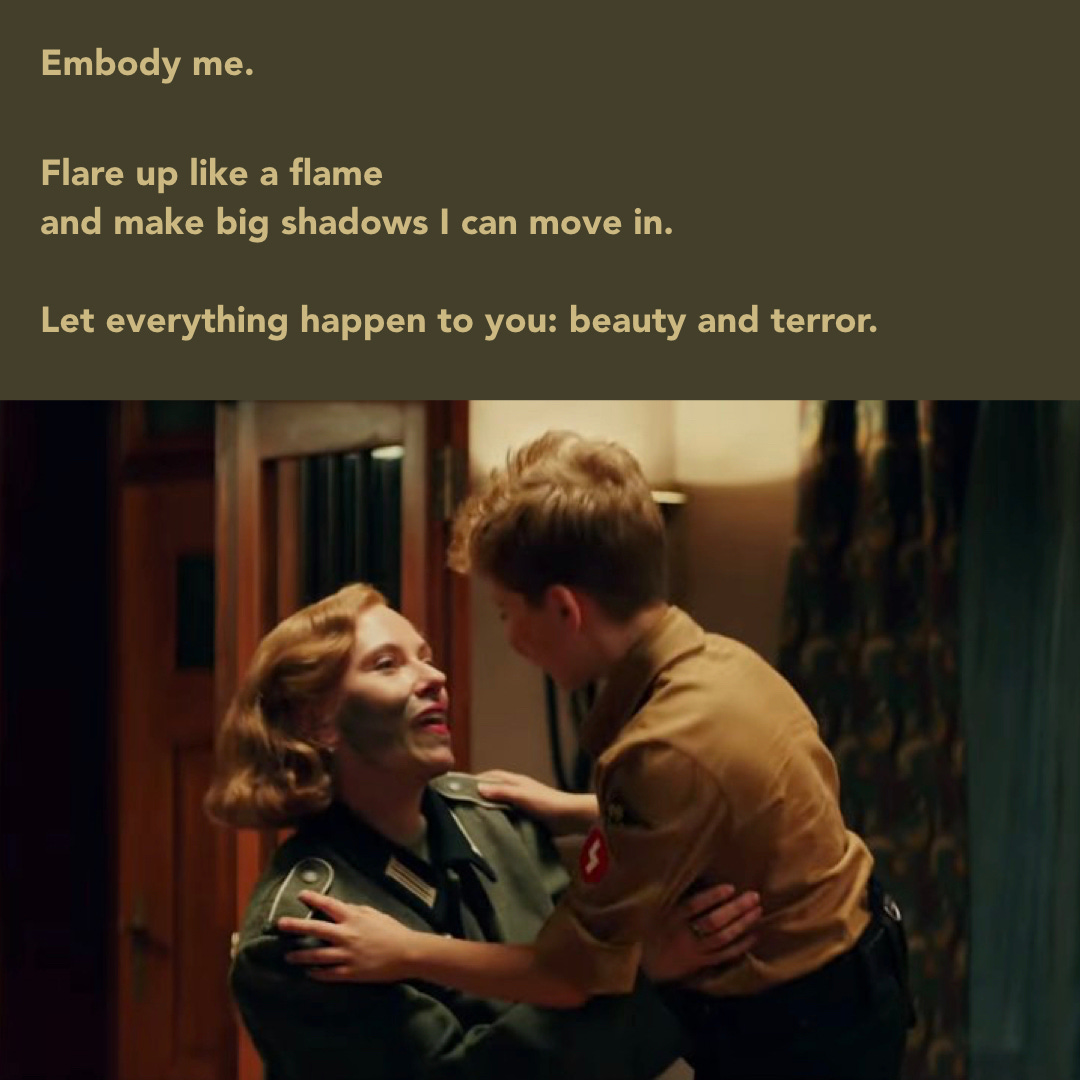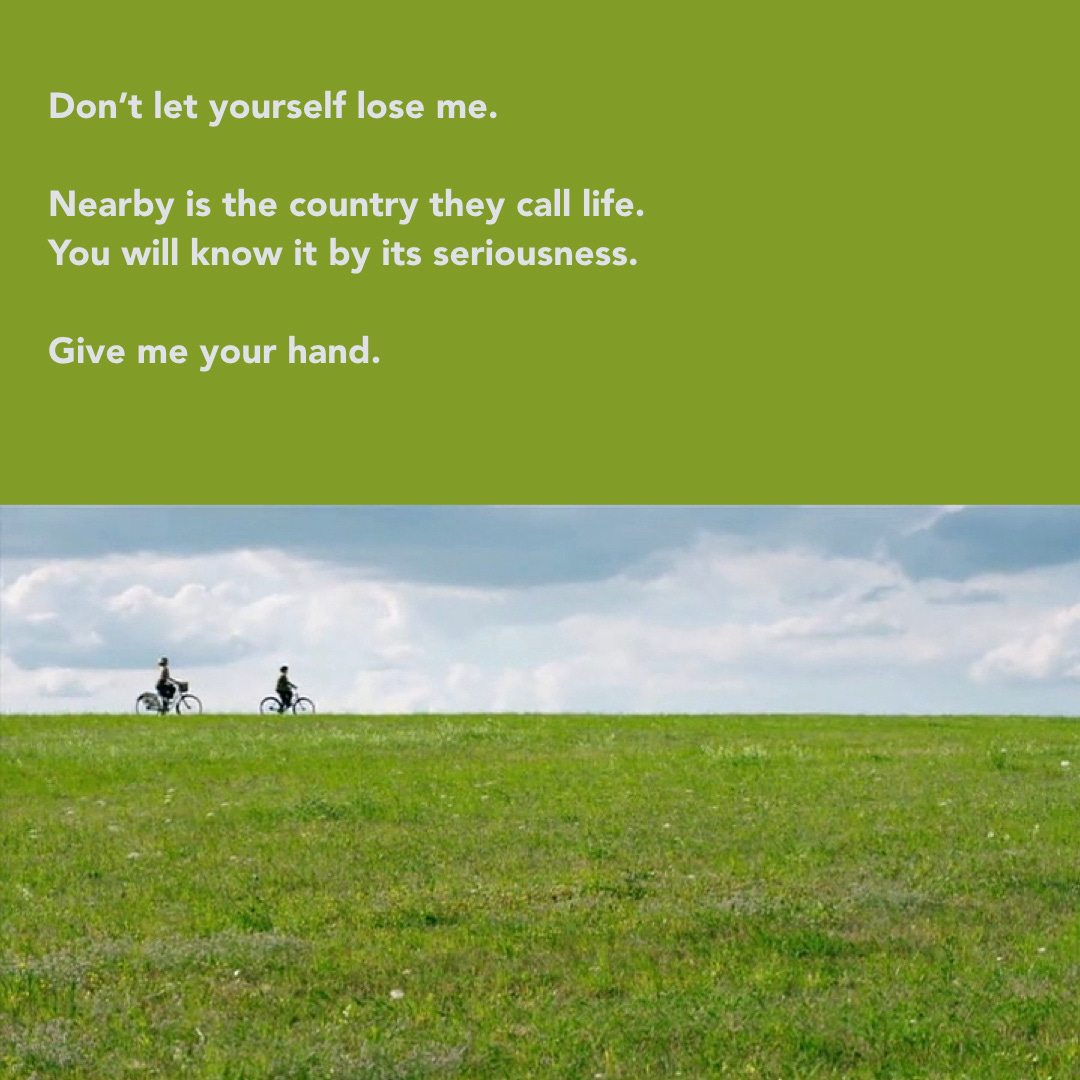Metaphor is an approach to life; a life that could be fashioned in the space between two notes in a murmuring glissando, a tableaux dreamt between the curl of a word and its meaning, a universe of comedy and drama between the vision of a director and the imperfection of the poet who inspired him. This magic of creative shape-shifting is something that I want to share with you.
I had thought several times of doing a series on poems that are referenced in films. But when I saw Taika Waititi’s satire on Nazism I could not help creating this little tribute today. He asks, in one of his interviews the pertinent question - “Why is it that it's 2019 and we still have to tell people that Nazis are bad?”. Clearly Modi, Shah and his not so reluctant fundamentalists didn’t get the memo. What I find about Watiti’s film is the unabashed embrace of wonder with terror - “Let everything happen to you, beauty and terror”. The world of the Nazi Germany isn’t painted in dark grays and sepias. The normalisation of the ideological siege is a choice that I found interesting (I’m not sure if this was conscious).
Nazi Germany doesn’t look horrid and threatening. This is definitely something we can identify with, eh? For those of us with the privileged comfort of a protected existence, the attack on the marginalised, on humanistic values, seems like a surreal, and vaguely distasteful, distant reality. Often, art portrays a reality more compelling and more truthful than the ones we live in - that is why it is so compelling and seductive.
It is not happy coincidence that Waititi chose to use Rilke’s poetry to end his film. It is also a message to the audience in its assessment of the twin feelings of comedy and tragedy that keep oscillating in their minds. I like the lines that appear towards the end suggesting an ambiguous engagement with some of the themes of the film. The onus is on us, eh? the audience:
Nearby is the country they call life.
You will know it by its seriousness.





